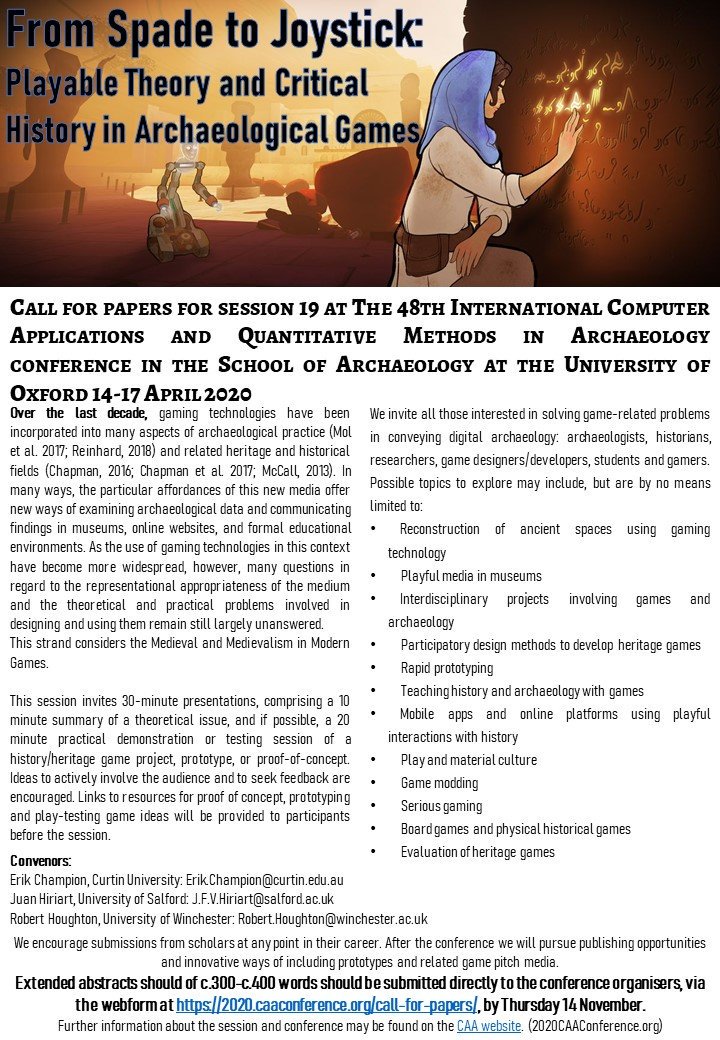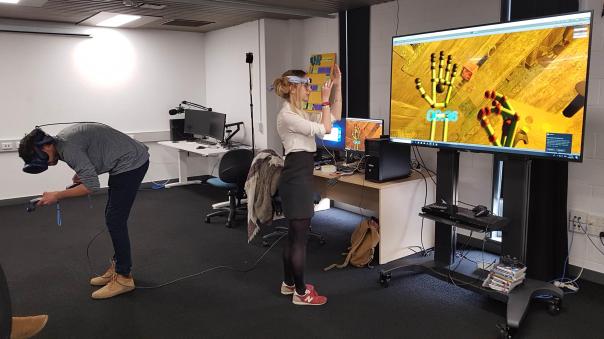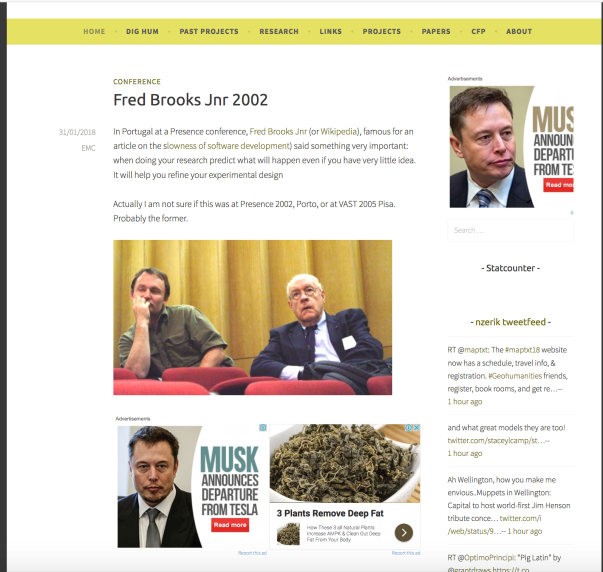Dear CAA member or ex-member, If you are interested in running a workshop on Tuesday, 14th April before the CAA 2020 conference starts, please email us at caa2020@arch.ox.ac.uk. Please provide us with the title of the workshop, a short (250 words or less) abstract of the workshop and what attendees will learn by attending it. Please also include a list of any equipment you might need (i.e. LCD projector, etc.) to successfully deliver your workshop. As the organisers will not provide computers for the attendees, please do remember to list all the items that will be required for participation (laptop, notepad, software). Please also indicate whether your workshop will be a full day or half day session, and whether you wished to set maximum numbers for attendees. Please submit your abstract by 12th February 2020 (midnight). Please contact the organisers at caa2020@arch.ox.ac.uk for clarification or further inquiries.
Category Archives: Announcements
CFP: Playable Theory & Critical History in Archaeological Games (CAA 2020)
major grant: Photogrammetry heritage and interaction design
Announced today-Australian Research Council (ARC) Linkage 2018 Grant LP180100284 awarded $461,783.00
Investigators:
Dr Andrew Woods; Professor Erik Champion; Dr Petra Helmholz; Dr David Belton; Professor Derek Lichti; Ms Catherine Belcher; Dr Ross Anderson; Mr Ian Thilthorpe; Mr Danny Murphy; Adjunct Professor Alec Coles; Dr James Hunter; Mr Michael Harvey.Photogrammetric Reconstruction for Underwater Virtual Heritage Experiences. This project aims to enable significant underwater cultural heritage sites such as shipwrecks to be recreated in immersive underwater virtual heritage experiences. Photogrammetric 3D reconstruction techniques will be used to generate complex digital 3D models of shipwreck sites from hundreds of thousands of underwater images. This will allow vivid experiences to be created which explain the stories of these wrecks. The project will conduct audience engagement studies to recommend the most appropriate methods to implement underwater virtual heritage experiences for Australian audiences. The sites which will be used as test datasets are some of the most significant Australian shipwreck sites, including HMAS Sydney (II) and HMAS AE1.
Institutes:Curtin University, WESTERN AUSTRALIAN MUSEUM, AUSTRALIAN NATIONAL MARITIME MUSEUM, and University of Calgary.
Things I am working on..
I may be traveling to Italy start of September, NZ or Australia mid November, and possibly South America (it is complicated).
Just submitted a tricky paper on a difficult topic to a farway place I have always wanted to go to, but logistically shouldn’t. Cancelled a paper to a conference in a country I used to work and love, trying to cut down travel and grant reviewing for other people (two this week to do, sigh). Also have 3 or 4 draft grant applications to get back to which is a bit insane as I am already waiting on the final verdict of 4 others!
But I may apply for a Future Fellowship this year. Wish me well. Thinking of a theoretical and applied evaluation study of cultural presence in interactive heritage/digital archaeology projects. I have a lot of questions here since I first wrote about it in 2001, and just trying to decide if it can be scoped in such a way that reviewers from other, sometimes-related fields, agree with me. Anyway. The below are being reviewed or in press. And I just realized there are 5 book chapters in the list. I told myself not to write any more book chapters, in fact to slow down on the writing. Well there is also a journal article or two about to be published but those can wait for a later mention. Hmm, it is really time to cut back on the writing. I apologize to anyone who tries to wade through my books and papers trying to find a specific something…
- BOOK Champion, E. (2020). Rethinking Virtual Places. Indiana University Press, Spatial Humanities series. Final blind peer review, due back July, I hope.
- BOOK Lee, C. & Champion, E. (Ed). (2020: pending). Screen Tourism and Affective Landscapes. May be changing publishers.
- CHAPTER Champion, E. (2019: in press). “From Historical Models to Virtual Heritage Simulations”. Open access book chapter for The Virtue of the Model 2.0 → From the Digital 3D Dataset to the Scientific Information Model V.2, Heidelberg University Press, Germany, March 2019. URL: http://books.ub.uni-heidelberg.de/arthistoricum/series/info/caa?lang=en Should have been printed by now! Open access.
- CHAPTER Champion, E. & Foka, A. (2020: in press). “Chapter 19 Art History, Heritage Games, and Virtual Reality”, in Brown, K. J. (Ed.). The Routledge Companion to Digital Humanities and Art History. Routledge, UK. With editor. Still to be reviewed I assume.
- CHAPTER Champion, E. (2020). Games People Dig: Are They Archaeological Experiences, Systems, or Arguments? In S. Hageneuer (Ed.), Communicating the Past in the Digital Age: Proceedings of the International Conference on Digital Methods in Teaching and Learning in Archaeology, (12th-13th October 2018). London, UK: Ubiquity Press. URL: https://communicatingthepast.hcommons.org/2018/04/19/release-of-the-call-for-paper/ Being reviewed.
- CHAPTER Champion, E. (2020 (pending). Title to be advised (Is 3D a new form of DH Text?). In B. Mauer & A. Salter (Eds.), Texts & Technology: Inventing the Future of the Humanities. TBA. Chapters due 15 July 2019. Oh better finish this.
- ARTICLE Champion, E. (2020). From Cultural Significance to Cultural Presence: How Computer Games Can Facilitate Cultural Heritage. International Journal of Heritage Studies. Extended abstract accepted. Due 31 July 2019. Also finishing this submission. Abstract accepted but full paper needs to be reviewed.
- TALK/WORKSHOP Champion, E. (2019). Invited Professor to Summer School: Cultural Heritage in Context. Digital Technologies for the Humanities. To be funded, invited. Host: Rosa Tamborrino Politecnico di Torino – Castello del Valentino, Turin Italy, 1-8 September 2019. Cultural Heritage in Context. Digital Technologies for the Humanities. Learning by gaming, partners: POLITO, UCLA, AISU, Museo del Cinema and the Italian Association of Urban History (AISU). Topics: Virtual Heritage (lecture); Gamification and Cultural Heritage (workshop). http://digitalhumanitiesforculturalheritage.polito.it/index.html
#CFP MCG’s Museums+Tech 2019 London
I don’t usually blogpost individual CFPs but this is due 17 June (UK time) and sounds excellent:
https://www.museumscomputergroup.org.uk/2019-proposals/
Call for papers now extended to 23:59 (London time) on 17 June 2019. Museums+Tech 2019 will be held at the British Library, London, on 18 October 2019.
MCG’s Museums+Tech 2019: openness
Museums and other cultural organisations have long been encouraged to be more open, in multiple senses of the word. From a technology point of view, this idea often centres on sharing collections data, producing open source software and tools, and developing open standards – all of which could have far-reaching implications for user engagement, future collaborations, and long-term preservation. Looking more broadly, the word ‘openness’ also has more infrastructural implications, as it relates to themes of transparency about decisions and processes, as well as inclusion of a wider visitor community. It’s also important to question this notion of openness – when should organisations be more open, and why might openness not always be desirable? For this year’s conference we are keen to hear a variety of perspectives on what openness means to you and your organisations, with honest reflections on related projects, acknowledging challenges and potential solutions.
How can museums and other cultural organisations be more open in terms of their collections and processes, is openness always desirable, and what barriers might we have to overcome for truly open digital cultural heritage?
The MCG’s Museums+Tech 2019 conference seeks proposals for presentations addressing these issues. It’s time to celebrate good work, and share ideas for helping museums and other cultural institutions do better. We’re open to suggestions, but topics might include:
- What does openness mean to you, in the context of museums and other cultural organisations?
- How are organisations opening up their collections to a wider audience?
- What technological and ethical considerations should be made?
- Have you been involved in a project to reuse open data from one or more cultural organisations in a creative or innovative way?
- How can organisations be open and transparent about their processes, both internally and externally?
- What role can openness play in decolonising collections and engaging with sometimes difficult and dubious organisational histories?
- Has openness within your organisation led to new projects or partnerships?
- What impact can openness have on visitor/user engagement?
- Can openness lead to greater inclusivity and diversity?
- When should organisations prioritise the use of open technologies or standards, and how can they support our work now and into the future?
- What are the potential barriers to openness and how might we address them?
The MCG’s annual conference attracts speakers and participants from some of the most innovative museums, agencies and university programmes in the world. We’re keen to hear from practitioners, researchers, funders, and those from related cultural heritage and technology sectors. All submitted papers will be reviewed by experts in the field.
The conference programme will include long and short presentations, and you can suggest a length to suit your topic in the proposal form. Short presentations are a great way for you to share useful ideas that others in the sector can try, or to present a provocation. Longer presentations let you provide a more detailed exploration of a topic or project.
Our audiences love our mixture of old and new voices. We have a great track record in presenting a diverse range of speakers, and we’ve started a profit-sharing scheme in acknowledgement of the resources required to attend and present at events. We can also provide some bursaries for speakers who would benefit from assistance with funds for travel, childcare etc. Please also read our Guidance for Speakers before submitting your proposal. Our events have a code of conduct designed to help everyone enjoy the event.
Proposals deadline
This call for proposals closes at 23:59 (London time) on 17 June 2019. Our international Programme Committee will review proposals over the following weeks and you should hear from us in mid-late July. If you have any questions please email us at contact@museumscomputergroup.org.uk.
paperback of ‘Organic Design in 20th C Nordic Architecture’ Book
Arrived last week, I think the paperback version may be nicer to hold and read than the hardcover version! Definitely cheaper.. available in Australia or internationally.

Organic Design in Twentieth-Century Nordic Architecture presents a communicable and useful definition of organic architecture that reaches beyond constraints. The book focuses on the works and writings of architects in Nordic countries, such as Sigurd Lewerentz, Jørn Utzon, Sverre Fehn and the Aaltos (Aino, Elissa and Alvar), among others. It is structured around the ideas of organic design principles that influenced them and allowed their work to evolve from one building to another. Erik Champion argues organic architecture can be viewed as a concerted attempt to thematically unify the built environment through the allegorical expression of ongoing interaction between designer, architectural brief and building-as-process. With over 140 black and white images, this book is an intriguing read for architecture students and professionals alike.

Free Workshop: 3D to Mixed Reality: From Regard3D to HoloLens (23.11.2018)
3D to Mixed Reality: From Regard3D to HoloLens
(register on Eventbrite) Friday 23 Nov 2-4PM Curtin University Library Level 5
3D models adopted/generated from image-based modelling techniques are increasingly used in research, shared online, incorporated into digital archives, and developed as assets for 3D games and for Virtual Reality applications. On the other hand, various HMDs (Head-Mounted-Display) offer Mixed Reality experiences; help us to experience and interact with virtual environments and objects via gesture, speech, gaze, touch and movement. This workshop will demonstrate how to make 3D models from photographs with free and open source software (FOSS, Regard3D), how to import a 3D model to a specific Mixed Reality HMD (Microsoft HoloLens), and you will also learn how the HoloLens can interact with the 3D model in mixed reality.
We will be using the following software:
- Regard3D
- MeshLab
- Unity3D
- HoloToolkit
What to bring:
You can just register and attend the workshop. However, it is better to bring your own laptop/device, preferably with the following software pre-installed (installation may take an hour but is free of charge):
Please register to secure your place, and cancel your ticket if you are no longer able to attend, as places are limited!
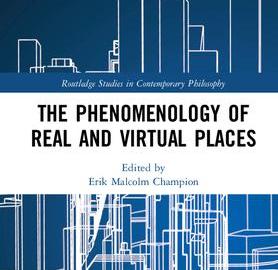
The Phenomenology of Real and Virtual Places
New edited book out 8 November:
Champion, E. (Ed.). (2018). The Phenomenology of Real and Virtual Places. The Routledge Studies in Contemporary Philosophy series. Routledge. 08 November 2018 (ebook 26 October 2018 9781315106267). ISBN 9781138094079
Feel free to ask Routledge for a review form and book copy..
This collection of essays explores the history, implications, and usefulness of phenomenology for the study of real and virtual places. While the influence of phenomenology on architecture and urban design has been widely acknowledged, its effect on the design of virtual places and environments has yet to be exposed to critical reflection. These essays from philosophers, cultural geographers, designers, architects, and archaeologists advance the connection between phenomenology and the study of place. The book features historical interpretations on this topic, as well as context-specific and place-centric applications that will appeal to a wide range of scholars across disciplinary boundaries. The ultimate aim of this book is to provide more helpful and precise definitions of phenomenology that shed light on its growth as a philosophical framework and on its development in other disciplines concerned with the experience of place.
3. The Efficacy of Phenomenology for Investigating Place with Locative Media by Leighton Evans
4. Postphenomenology and “Places” by Don Ihde
5. Virtual Place and Virtualized Place by Bruce Janz
6. Transactions in virtual places: Sharing and excess in blockchain worlds by Richard Coyne
7. The Kyoto School Philosophy on Place: Nishida and Ueda by John W.M. Krummel
8. Phenomenology of Place and Space in our Epoch: Thinking along Heideggerian Pathways by Nader El-Bizri
9. Norberg-Schulz: Culture, Presence and a Sense of Virtual Place by Erik Champion
10. Heidegger’s Building Dwelling Thinking in terms of Minecraft by Tobias Holischka
11. Cézanne, Merleau-Ponty, and Questions for Augmented Reality by Patricia Locke
12. The Place of Others: Merleau-Ponty and the Interpersonal Origins of Adult Experience by Susan Bredlau
13. “The Place was not a Place”: A Critical Phenomenology of Forced Displacement Neil Vallelly
14. Virtual Dark Tourism in The Town of Light by Florence Smith Nicholls
PhD Scholarships for S American Students
South American students wishing to study for a PhD at Curtin or 3 other Australian technical universities please read this
https://www.atn.edu.au/scholarships-grants/atn-latam-scholarships/
Applicants must be a citizen of: Argentina, Brazil, Chile, Colombia, Ecuador, Paraguay, Peru or Uruguay.
Applications close 31 January 2019.
Single Character 2 Person Climbing Game
A French student Agathe Limouzy (Toulouse) was an intern here at Curtin, I mentored her for a game design project. It was supposed to be cyber-archaeology but morphed slightly into a two person controlling single character climbing game, using an HTC Vive and a leap Controller (tracking hands) attached via a bandana. The person with the Leap can climb or send hand directions to the person in the head mounted display, who controls the legs.
Short video at: https://twitter.com/curtinmakers/status/1042714070120448000
Landscape Data, Art/Artefacts & Models as Linked Open Data Perth, Australia
For those interested in the above, please keep Friday 27 July 2018, open for an all-day free event in Perth.
We will be inviting speakers to talk on Australia-specific cultural issues and digital (geo) projects in relation to the above event.
More details to follow shortly and announced via http://commons.pelagios.org/:
So there is an Australian working group for Pelagios – Linked Open Data. We will run an event on 27 July at Curtin. News to follow.
Australia LAMLOD Group: led by Erik Champion (UNESCO Chair of Cultural Visualisation and Heritage, Curtin University) and Susan Fayad (City of Ballarat), this WG seeks to address the problem of linking materials between academic research and cultural heritage in an Australian context. This is not so much about extending Pelagios linked data practice to an entirely new continent, though that is important; the problem this WG seeks to address is the multi-layered and contentious representation of cultural heritage, namely: the vast scale of Australian landscapes and historic journeys; the local and highly specific Aboriginal ways of describing, navigating and experiencing the landscapes with hundreds of different languages; and the specific problem of integrating UNESCO designated built and natural heritage with its surrounding ecosystems. The LAMLOD WG will create landscape data and visualisation displays, investigate related cultural artefact knowledge (Indigenous and colonial), and build towards the integration of linked open data and 3D models.
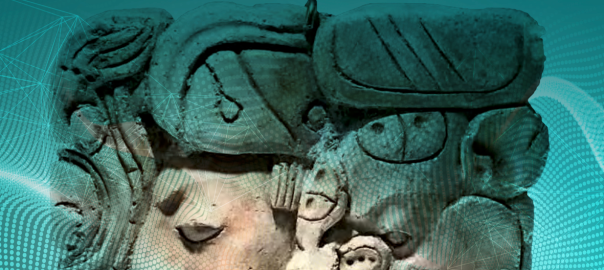
new Book Chapter (Arqueología Computacional)
My new chapter, A Schematic Division of Game-Learning Strategies Relevant to Digital Archaeology and Digital Cultural Heritage (in Spanish) is out. Diego the editor informed me he will see if all chapters can be available via PDF.
Champion, E. (2017). Una división esquemática de estrategias de aprendizaje relevantes para el patrimonio cultural basadas en juegos digitales (A Schematic Division of Game-Learning Strategies Relevant to Digital Archaeology and Digital Cultural Heritage). In D. Jiménez-Badillo (Ed.), Arqueología Computacional. Nuevos enfoques para el análisis y la difusión del patrimonio cultural (pp. 217-224). México: Instituto Nacional de Antropología e Historia, RedTDPC, CONACYT. Chapter 14_Champion_PDF
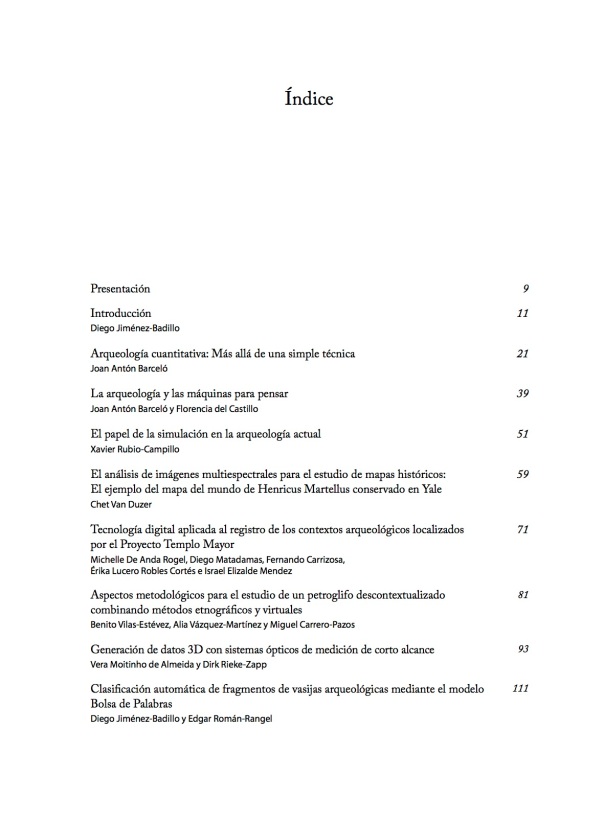
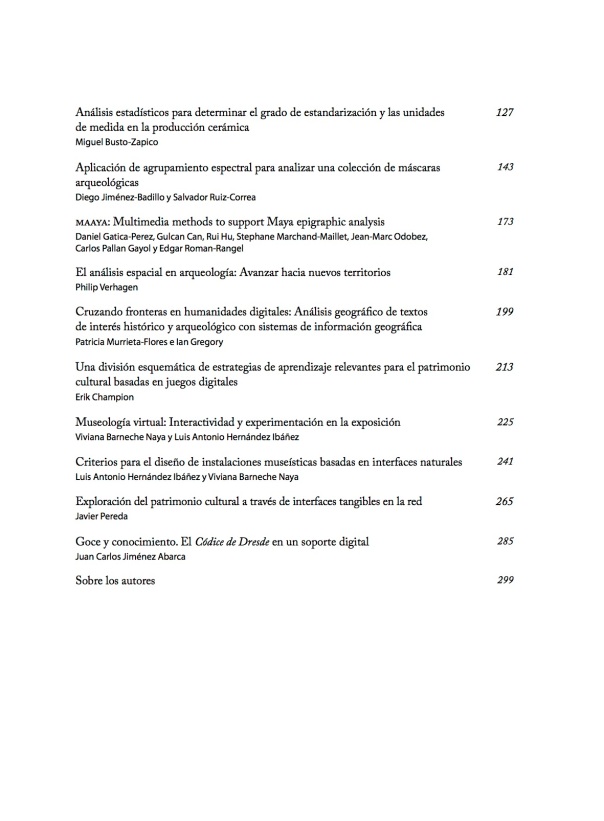
Digital Humanities, Libraries, and Partnerships FREE preprint chapters
Preprint versions of chapters appearing in Digital Humanities, Libraries, and Partnerships: A Critical Examination of Labor, Network, and Community. Eds. Robin Kear and Kate Joranson. Chandos, 2018.
Final versions of all chapters appear in the published version of the book, available here:
Introduction, Robin Kear and Kate Joranson: http://d-scholarship.pitt.edu/33818/
Chapter 2: “Our Marathon: The Role of Graduate Student and Library Labor In Making The Boston Bombing Digital Archive” by Jim McGrath and Alicia Peaker. http://dx.doi.org/10.17613/M62Z8Fht
Chapter 3: “Digital Humanities as Public Humanities: Transformative Collaboration in Graduate Education.” by Laurie N. Taylor, Poushali Bhadury, Elizabeth Dale, Randi K. Gill-Sadler, Leah Rosenberg, Brian W. Keith, Prea Persaud: http://ufdc.ufl.edu/AA00048267/00001
Chapter 4: “Exploring the Moving Image: The Role of Audiovisual Archives as Partners for Digital Humanities and Cultural Heritage Institutions” by Adelheid Heftberger. In Digital Humanities, Libraries, and Partnerships: A Critical Examination of Labor, Network, and Community, edited by Robin Kear and Kate Joranson, Chandos, 2018, 45-57. http://dx.doi.org/10.17613/M66S19
Chapter 6: Glass, E. R. (2018). Engaging the knowledge commons: setting up virtual participatory spaces for academic collaboration and community. In Digital Humanities, Libraries, and Partnerships: A Critical Examination of Labor, Network, and Community. UC San Diego. Retrieved from https://escholarship.org/uc/item/6zp934sm
Chapter 7: Miller, Karen, Erik Champion, Lise Summers, Artur Lugmayr, and Marie Clarke. 2018. “Chapter 7 – The Role of Responsive Library Makerspaces in Supporting Informal Learning in the Digital Humanities.” In Digital Humanities, Libraries, and Partnerships, 91-105. Chandos Publishing. Retrieved from https://maker.library.curtin.edu.au/book-chapter-published/
Chapter 10: “Digital Humanities as Community Engagement: The Digital Watts Project” by Melanie Hubbard and Demrot Ryan: http://digitalcommons.lmu.edu/librarian_pubs/93/
Chapter 11: Russell, Beth. “The Collaborative Project Management Model: Akkasah, an Arab Photography Project.” Digital Humanities, Libraries, and Partnerships: A Critical Examination of Labor, Network, and Community, edited by Robin Kear and Kate Joranson, Chandos, 2018. http://hdl.handle.net/2451/41680
The Phenomenology of Virtual Places (observations)
Just submitted a draft of the above edited book of 14 proposed chapters to Routledge, to their Research in Phenomenology series.
The Phenomenology of Virtual Places is an edited book on the history, implications and usefulness of phenomenology for real places and virtual places, with chapters by philosophers, cultural geographers, architects and archaeologists.
I won’t summarize the chapters right now as the series editors have the right to ask for major subtractions, additions and revisions but I am very happy about the range of disciplines, perspectives and topics.
I do have some observations
- One thing very much under-represented is the unconventional, the alternative and the non-Western or not so obviously Western (and I don’t like the term “Western” but what are better options here)?
- Also, the connections and distinctions between phenomenology and ethnography are perhaps still to be explored, especially for game and VR evaluation.
- Phenomenology deserves even more criticism. It is either obvious, or difficult and subtle, available to all or best practiced by trained phenomenologists (or is that, people trained to detect or extract or train phenomenological accounts).
- Writing introductions to edited books can be very difficult.
- How HMDs will challenge our notions of embodiment and social presence in VR will be a very big thing.
- Locative media raise very interesting research avenues for embodiment and the concept of place.
- And on a workflow-related note, if the publisher doesn’t give you a complete, formal template at the start, stick to your own and demand it be used by all authors even if the final template changes. Saves a world of pain.
- Also, game and VR companies would save us all trouble by clearly saying which screenshots can be used in academic books or provide a pathway for a quicker permissions/rejections process. If your images are in a book, it is free PR!
Visiting fellowships in digital humanities/heritage/serious games
I may have the chance to take a short break from Perth and apply for a visiting fellowship or scholarship, preferably in digital humanities, digital heritage (3D), or serious games (history and heritage).
I asked on twitter if there were links, URLs and did not hear back so I had a little search of my one, hope these may help others. I do not necessarily need a salary etc but some of these might include a stipend:
Australia
- Canberra http://hrc.cass.anu.edu.au/visiting-fellowships 2018
- National Library of Australia, Canberra https://www.nla.gov.au/awards-and-grants/fellowships-and-scholarships
- Sydney http://sydney.edu.au/education_social_work/about/international/visiting_index.shtml
- Deakin http://www.deakin.edu.au/arts-ed/industry-relations-and-partnerships/international-visiting-scholar-scheme
- Melbourne https://msd.unimelb.edu.au/visiting-scholars-program
- Newcastle https://www.newcastle.edu.au/research-and-innovation/global-leadership/global-partnerships/successful-irvf-fellows running?
- Griffith https://www.theaha.org.au/visiting-fellowship-and-phd-scholarship-harry-gentle-resource-centre-griffith-university/ not sure if running
- Museum of Applied Arts and Sciences Sydney https://maas.museum/research/research-fellowship-program/
- Tasmania http://www.utas.edu.au/provost/awards-grants/visiting-fellows-and-visiting-scholars-programACHRC
- UQ https://hass.uq.edu.au/DHSS (not sure if this has some)
UK and Eire
- Henry Moore Institute Leeds (sculpture) http://www.heritageportal.eu/News-Events/Latest-News/Visiting-Research-Fellowships-Henry-Moore-Institute-Leeds-UK.html
- Cambridge https://www.educ.cam.ac.uk/about/visitingscholars/
- Serious games designers sought https://www.southampton.ac.uk/wrc/groups/games_design_hub.page
- Wolfson College Visiting Scholarship Scheme https://www.wolfson.ox.ac.uk/clusters/life-writing/scholarships
- Maynooth https://www.maynoothuniversity.ie/foras-feasa/visiting-fellowships
- Edinburgh visiting researcher & postdoc http://mhrc.academicblogs.co.uk/2018/01/29/visiting-researcher-and-post-doctoral-opportunities-digital-scholarship-fellowships-at-iash-edinburgh/
Europe
- Sweden (not sure where one applies) http://www.his.se/en/Research/Enterprises-for-the-Future/About-Enterprises-for-the-Future/Visiting-professors/
- Cyprus https://www.cyprusinteractionlab.com/fellowships/
- Istanbul Turkey https://anamed.ku.edu.tr/en
- https://www.theaha.org.au/visiting-fellowship-and-phd-scholarship-harry-gentle-resource-centre-griffith-university/
- Ca’ Foscari https://www.unive.it/pag/12563/
- Postdocs in Germany http://eadh.org/news/category/jobs
USA
- UVA-Tibetan scholarship (postdoc) http://uvatibetcenter.org/?page_id=724
- Cornell http://guides.library.cornell.edu/c.php?g=31362&p=809414
- Harvard (Italian Renaissance Studies) http://itatti.harvard.edu/fellowship-digital-humanities
- Stanford humanities center http://shc.stanford.edu/fellowships
- U. of Washington Simpson Center for the Humanities https://simpsoncenter.org/programs/digital-humanities
- Washington Digital Librarianship http://www.arl.org/focus-areas/scholarly-communication/digital-scholarship-support/4147#.WoEZIXxx3RY
- Getty Institute http://www.getty.edu/research/scholars/
- Rice University Humanities Research Center (junior scholars, December) http://hrc.rice.edu/calls-deadlines
- Brown University Center for Public Humanities and Cultural Heritage, Rhode Island https://www.brown.edu/academics/public-humanities/news/2017-06/wikipedia-visiting-scholar-jnbc
- Library of Congress Visiting Scholars & Scientists https://www.loc.gov/preservation/outreach/visit/index.html
- Rochester (must be tenure track at current employment) http://www.sas.rochester.edu/humanities/fellowships/index.html
Early career or postdoc
More general
- USA/UFL http://www.humanities.ufl.edu/digitalhum-funding.html
- ACHRC Australia https://hass.uq.edu.au/DHSS
Announcement: This blog is under review..by me
I have been surprised and charmed by the number of overseas strangers who tell me they read this blog but the recent shockingly untrue adverts wordpress are running on this blog have given me pause.
Should I pay them to continue? It is relatively simple and I thinking with hosting a wordpress blog I could have 3D models inside posts.
But I am not happy with their ethics and lack of personalization – yes I read science and technology blogs but not fake news (Musk is not leaving Tesla, he recently signed a long-term contract with them).
And as the UNESCO chair projects and outputs grow I will have to create a webpage for that and perhaps a personal blog (my writing is getting worse, I need the practice!)
Are there any suggestions out there for a blog or webhosting site? Advert-free?
I note many sites listing alternatives don’t mention the adverts:
http://www.wpbeginner.com/showcase/wordpress-competitors-23-popular-alternatives-to-wordpress/
Some possibilities
- Open Edition and Hypotheses
- GitHub Pages
- Google sites? Gee I see https://sites.google.com/site/nzerik/is still alive!
- Hmm if you only need a tiny 10mb website service: https://www.zoho.com/sites/pricing.html
CFP: PRESENCE Call for Papers – “VR/AR in Culture and Heritage” (deadline March 2017)
A new Call for Papers:
This special issue will be highly interdisciplinary in nature, and submissions which promote collaboration between science and engineering and arts and humanities will be welcomed. The Call is attached in .pdf fom, and is also accessible from the PRESENCE home page:
http://www.mitpressjournals.org/loi/pres
PRESENCE: Teleoperators and Virtual Environments
An MIT Press Science & Technology Journal
Visit us at mitpressjournals.org/loi/pres
==========
Scope and Topics
Virtual heritage is a testament to the impact of digital transformation in the arts and humanities, and a driving force for technological innovation generated through the arts and humanities’ increasing appetite for digital technology. In this special issue, we aim to examine present trends in culture and heritage within the context of virtual reality and augmented reality. The scope of the special issue includes the following topics:
• New approaches in culture and heritage applications and interpretations
• Responsive, adaptive and evolvable behaviors in immersive virtual environments that capture culture and tangible and intangible heritage
• Multiuser virtual environments
• Mixed reality and the experience of real and virtual environments
• Presence and phenomenology in culture and heritage applications
• High definition imaging, stereoscopic displays, interactive cinema
• Intelligent and High Performance Computing for Virtual Cultural Heritage
• Ubiquitous computing and new forms of culture and heritage representations via VR and AR
• VR and AR in Galleries, Libraries, Archives and Museums
• Interactive Exhibits in Public Spaces
• Digital Transformations of Museums with Immersive & Interactive Time Machines
• VR and AR as a narrative
• Education in culture and heritage via VR and AR
• Tools, techniques, frameworks and methodologies
• Virtual environments case studies
Schedule
• Manuscript submission deadline: March 1, 2017
• Final revisions: September 1, 2017
• Planned publication: PRESENCE 27-1 (Early 2018)
Submissions
Manuscripts should conform to the journal’s submission guidelines:
http://www.mitpressjournals.org/page/sub/pres
Authors, please note that audio and video files can be hosted as supplementary onlinematerial accompanying published articles. For more information about multimedia file formats and submission guidelines, please contact presence@mit.edu.
Contact
Dr. Eugene Ch’ng, Director, NVIDIA Joint-Lab on Mixed Reality, University of Nottingham (China Campus). Email: eugene.chng@nottingham.edu.cn
Further information: http://www.mitpressjournals.org/loi/pres
==========
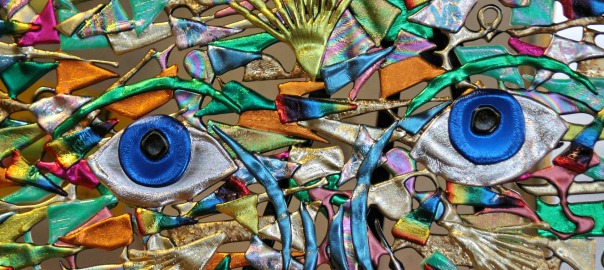
Curtin Cultural Makathon 11 Nov 2016
Hack/slash/cut/bash/scrape/mod/mash – it’s a culture thing
Join the School of Media, Culture and Creative Arts and Curtin Library Makerspace to hack cultural datasets and heritage information.
Use government, institutional research data portal, gallery, library, archive and museum information as data sources. Experiment with data for a research project or proposal; create something accessible, beautiful and/or useful using craft, games, virtual reality, apps or something else: it’s up to you.
Date:
Thursday 10 November 2016 (5pm – 7pm launch / team registration) &
Friday 11 November 2016 (8.30am – 6pm)
Location:
Lounge @ your Library, Level 2
Robertson Library (Building 105)
Curtin University
Kent Street, Bentley
Registration: Free via eventbrite
For more information visit the Curtin Cultural Makathon website.
Research Fellow Opportunity
UNESCO Research Fellow in Cultural Heritage & Visualisation, Curtin University.
Direct Link here or at the Curtin University Vacancies, Perth, Western Australia.
The role starts in 2016.
| Position Title: | UNESCO Research Fellow in Cultural Heritage & Visualisation |
| Position Number: | 3553170 |
| Tenure: | Full-time, fixed term until 1 September 2020 |
| Salary Range: | $97,076 – $115,277 (ALB) |
| Location: | Bentley |
| Description: | Do you have experience with digital archaeology and a passion to join the School of Media, Culture and Creative Arts? Curtin University has, in cooperation with UNESCO, established a Chair in Cultural Heritage and Visualisation. The purpose of the Chair is to promote an integrated system of research, training, information and documentation on virtual heritage sites and facilitate collaboration between high-level, internationally-recognized researchers and teaching staff of the University and other institutions in Australia, Europe and North America and in other regions of the world. As a Research Fellow, you will work with the UNESCO Chair on a project which aims to survey and promote guidelines, tutorials and open access tools for the design, preservation and teaching of 3D models and landscapes of UNESCO heritage sites, particularly in Australia. You will be expected to contribute to grant writing and research publications. Along with a relevant doctoral qualification, the ideal candidate would have experience in aspects of digital archaeology, architectural computing, or databases and related programming (especially in the creation and maintenance of online repositories). Evidence of quality research outputs and interpersonal skills are also essential. |
| Benefits and Remuneration: | The salary ranges presented are those which are contained within the University’s Enterprise Agreements; as are the employee benefits which include employer superannuation contribution at the rate of the current Government Superannuation Guarantee amount up to 17 percent, study assistance, a comprehensive salary packaging and wellness programs and flexible and family friendly work practices. |
| Contact Person: | Professor Erik Champion |
| Contact Email: | erik.champion@curtin.edu.au |
| Valuing Diversity and Affirmative Action: | Curtin University embraces diversity and inclusion and invites applications from women, men and intersex individuals who share the University’s values, ethics, international outlook, value diversity and have an informed respect for indigenous people. We are committed to making reasonable adjustments to provide a positive, barrier-free recruitment process and supportive workplace, therefore, if you have any support or access requirements, we encourage you to advise us at time of application. We will then work with you to identify the best way to assist you through the recruitment process. All personal information will be kept confidential in compliance with relevant privacy legislation. |
| Submit Application: | To submit an application, click on the Apply Now button. |
| Disclaimer: | Curtin reserves the right at its sole discretion to withdraw from the recruitment process, not to make an appointment, or to appoint by invitation, at anytime. |
| Applications Close: | 5 pm, Monday 24 October 2016 (AWST) |

